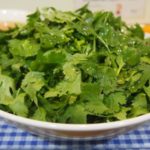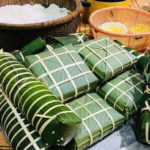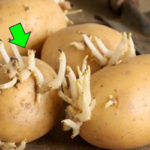1. Keep clean
- Wash hands with soap under running water before and after preparing food, especially for raw foods such as poultry, fish, shrimp, crab, clams, and eggs.
- Wash hands after using the toilet, changing diapers for babies, or touching pets in the house.
- Clean cooking utensils, cutting boards, and kitchen surfaces with soap/dishwashing liquid.

- Avoid cooking while having diarrhea.
- Cover cuts and burns on hands with adhesive tape and wear gloves before touching food.
- Rinse fruits and vegetables under running water and place them in a clean basket, tray, or plate.
- Disinfect kitchen towels with hot water and detergent.
2. Food reheating method

- The minimum temperature to prevent bacterial contamination in cooked foods is about 74ºC. Therefore, you need to reheat the food to at least this temperature, especially for pregnant women, the elderly, and children.
- Partially cooked food may contain a lot of bacteria. Soup dishes and sauces should be boiled. For eggs, they must be fully cooked with both the yolk and the egg white. Shellfish will be cooked when their shells are open. Fish is also a type of food that needs to be thoroughly cooked.
3. Avoid bacterial infection
- Wrap leftover food and raw meats tightly so that they do not drip onto other foods. Do not let them near cooked food.
- Use separate cutting boards, utensils, and plates for raw foods, as bacteria from these utensils can spread to other foods such as vegetables and fruits…

- Regularly clean the surfaces used for food preparation with paper towels and clean cloths.
4. Refrigerator
- For perishable foods or those that have been partially prepared, you should refrigerate them for about two hours. In case they are kept at normal room temperature in the kitchen (about 32ºC), you need to cook them within one hour from the time of purchase or preparation.
- Marinating liquid should be stored in the refrigerator instead of leaving it outside.
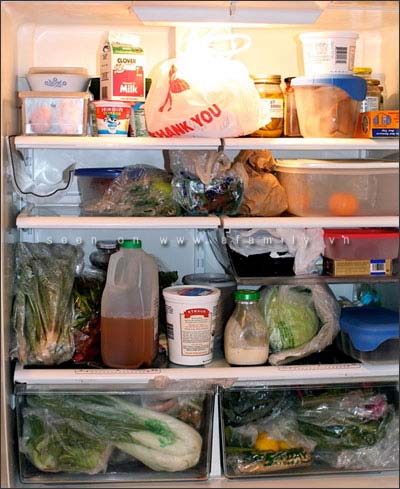
- Keep poultry, fish, and seafood frozen for two days from the time of purchase, and from three to five days for beef, veal, lamb, or pork.
- To preserve leftover food and prevent it from spoiling, quickly put them in containers and keep them cool in the refrigerator’s chill or freezer compartments.
- Never refrigerate leftover food for more than 4 days.
5. Safe thawing tips
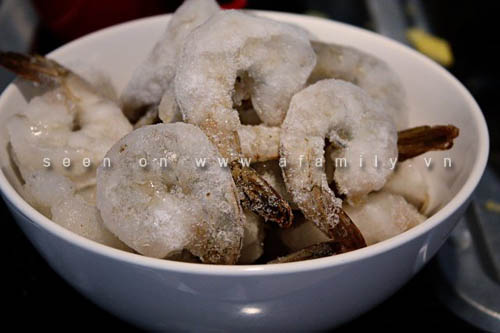
- If you want to thaw meat in the refrigerator, you should keep the meat packaging intact during the thawing process, so that the meat juice does not drip into the refrigerator and contaminate other foods. Use thawed poultry, ground meat, and fish on the same day. For other types of food, they can be used within three to five days…
– When thawing with cold water, keep the food packaging intact and place them in water, changing the water regularly after about 30 minutes. For small packages of food, you can place them under running water to speed up the thawing process. Cook the food immediately after it has thawed completely.
8 Common Mistakes People Make with Cutting Boards
Are you using your cutting board correctly? Many Vietnamese households rely on cutting boards in their kitchen, but not everyone knows how to use them properly, especially when it comes to wooden cutting boards. Check out these 8 mistakes to avoid when using a cutting board to ensure both hygiene and safety for everyone in your family.
Is Refrigerated Leftovers Linked to an Increased Risk of Cancer?
Dr. Lam Van Man, Head of Research, Development and Technology Transfer Department of the Institute of Safety Food, has warned of the risk of food poisoning when reheating leftovers from the refrigerator. But what should we be aware of when it comes to the possibility of these leftovers causing cancer? Here, we explore what the experts have to say on the matter and offer some tips for safe eating.
Preserving Leftover Food from the Tet Holiday
With the beginning of the Lunar New Year, many households are stocking up on food to celebrate the festive occasion. While keeping food in the refrigerator is convenient, it can also be harmful to users if not done correctly. We have compiled a few tips to help ensure food remains fresh and safe to consume during Tet.
























